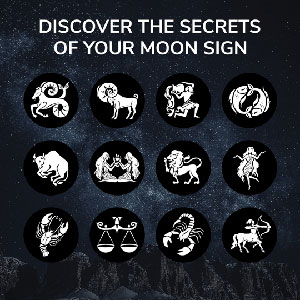In November, the music industry mourned the loss of former Fleetwood Mac keyboardist Christine McVie, who passed away at the age of 79. Her family members revealed that her death was a result of a short illness, but the reasons for her passing were unknown for several months.
However, recently obtained documents reveal that McVie suffered from an ischemic stroke, which occurs when a blood clot blocks or narrows an artery leading to the brain.

The American Stroke Association reports that this type of stroke accounts for about 87 percent of all strokes. Additionally, McVie had a “metastatic malignancy of unknown primary origin,” indicating that cancer had spread throughout her body, but the original tumor site could not be identified.
Her death certificate recently obtained by The Blast on 3rd April lists cancer as the secondary cause of death. The music community continues to honor McVie’s legacy and contributions to Fleetwood Mac’s iconic sound.
Remembering the Life and Work of Fleetwood Mac’s Christine McVie
Christine McVie was a renowned British singer, songwriter, and musician, most famously known for being a keyboardist and vocalist in the rock band Fleetwood Mac. McVie was associated with the band from 1970 until 1998, and again in 2014. Her contributions to the band’s successful albums such as “Rumours,” “Tusk,” and “Mirage” are unforgettable.
McVie is credited with writing and performing some of Fleetwood Mac’s most famous songs, including “Don’t Stop,” “You Make Loving Fun,” and “Songbird.” She also worked with other artists such as Lindsey Buckingham and Mick Fleetwood during her tenure with the band.

Christine McVie Solo Work
Apart from her association with Fleetwood Mac, McVie released several solo albums such as “Christine McVie” and “In the Meantime.” Her work also included contributing to soundtracks for films and television shows.
For her contributions to music, Christine McVie has been honored with numerous awards and accolades, including her induction into the Rock and Roll Hall of Fame as a member of Fleetwood Mac. Her work and legacy have left an indelible impression on the world of rock music, inspiring generations of musicians.
What causes an Ischemic stroke?
An ischemic stroke occurs when an artery supplying blood to the brain is blocked or narrowed, leading to a reduction in blood flow and oxygen to the affected area of the brain. The most common cause of this blockage is the formation of a blood clot within an artery in the brain, a condition called cerebral thrombosis. Another possible cause is an embolism, which is a clot that forms in another part of the body and travels to the brain. Additionally, a narrowing of an artery in the head or neck due to the buildup of fatty deposits can also lead to reduced blood flow and increase the risk of blood clots. Certain risk factors, such as high blood pressure, high cholesterol, diabetes, smoking, obesity, and family history of stroke can also increase the risk of ischemic stroke.
Common Causes of Ischemic Stroke
- Cerebral thrombosis: A blood clot forms within an artery in the brain, leading to reduced blood flow and oxygen to the affected area of the brain.
- Embolism: A clot that forms in another part of the body travels to the brain, causing a blockage in the artery.
- Atherosclerosis: A buildup of fatty deposits in the arteries that supply blood to the brain can lead to a narrowing of the artery and increase the risk of a blood clot forming.
- Cardiovascular disease: Heart conditions, such as heart attack, heart failure, or abnormal heart rhythm, can increase the risk of ischemic stroke.
- Carotid artery disease: Narrowing or blockage of the carotid arteries in the neck, which supply blood to the brain, can increase the risk of stroke.
- High blood pressure: Uncontrolled high blood pressure can damage the blood vessels and increase the risk of stroke.
- High cholesterol: High levels of cholesterol in the blood can lead to a buildup of plaque in the arteries, increasing the risk of stroke.
- Diabetes: Uncontrolled diabetes can damage the blood vessels and increase the risk of stroke.
- Smoking: Tobacco use can damage the blood vessels and increase the risk of stroke.
- Family history: A family history of stroke can increase the risk of ischemic stroke.
Symptoms of Ischemic Stroke
- Sudden numbness or weakness in the face, arm, or leg, especially on one side of the body
- Sudden confusion or trouble speaking or understanding speech
- Sudden trouble seeing in one or both eyes
- Sudden trouble walking, dizziness, loss of balance or coordination
- Sudden severe headache with no known cause
It’s important to note that these symptoms can appear suddenly and without warning. If you or someone you know is experiencing any of these symptoms, it’s important to seek emergency medical attention immediately. Remember, “time is brain” – the faster a person receives medical treatment, the better their chances of recovery.
Prevention Strategies:
- Maintain a healthy lifestyle: Eating a healthy diet, staying physically active, and maintaining a healthy weight can reduce the risk of stroke.
- Manage chronic health conditions: Control high blood pressure, cholesterol, and diabetes through lifestyle changes and medical treatment.
- Quit smoking: Smoking is a major risk factor for stroke, so quitting smoking can greatly reduce the risk.
- Drink alcohol in moderation: Limiting alcohol intake can help reduce the risk of stroke.
- Take medications as prescribed: If you have conditions that increase your risk of stroke, such as atrial fibrillation, carotid artery disease, or blood clotting disorders, taking medications as prescribed can help manage these conditions and reduce your risk of stroke.
- Manage stress: Chronic stress can increase the risk of stroke, so finding healthy ways to manage stress, such as exercise, meditation, or talking to a mental health professional, can help reduce the risk.
- Know the signs and symptoms of stroke: Being able to recognize the signs and symptoms of stroke and seeking medical attention immediately can improve outcomes and reduce the risk of long-term disability.
Know more:
Q. What was Christine McVie’s cause of death?
Ischemic Stroke was the primary cause of death according to the report obtained by The Blast.
Q. What short illness did Christine McVie have?
Scoliosis
Q. What did Stevie Nicks say about Christine McVie death?
Nicks signed the note, “See you on the other side my love, don’t forget me, Always Stevie.”



[…] Christine McVie, the Fleetwood Mac’ Singer Died Of Massive Stroke: https://sundaymania.com/fleetwood-macs-christine-mcvie-cause-of-death-ischemic-stroke/ […]